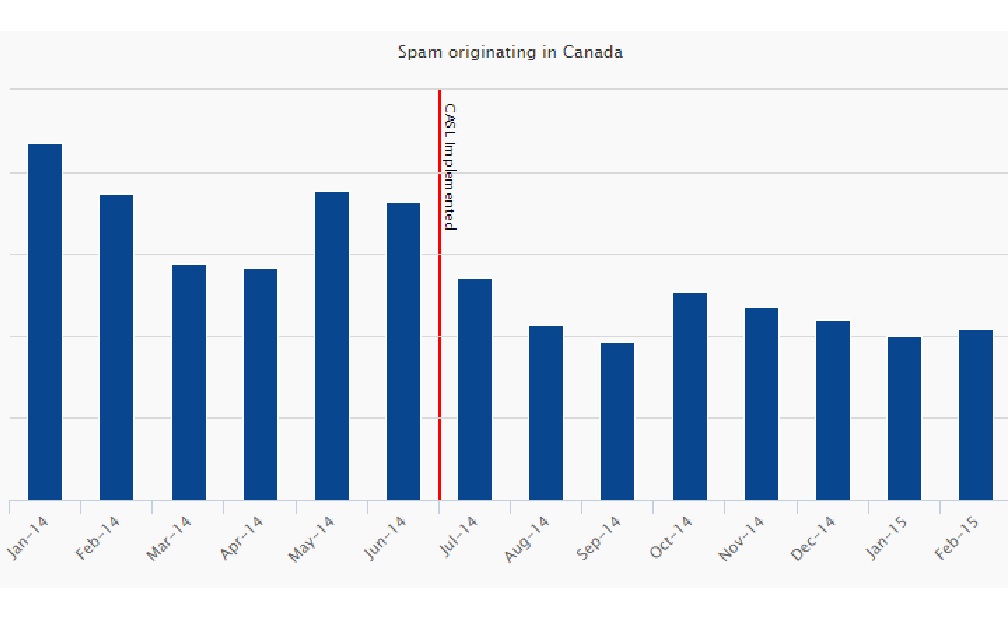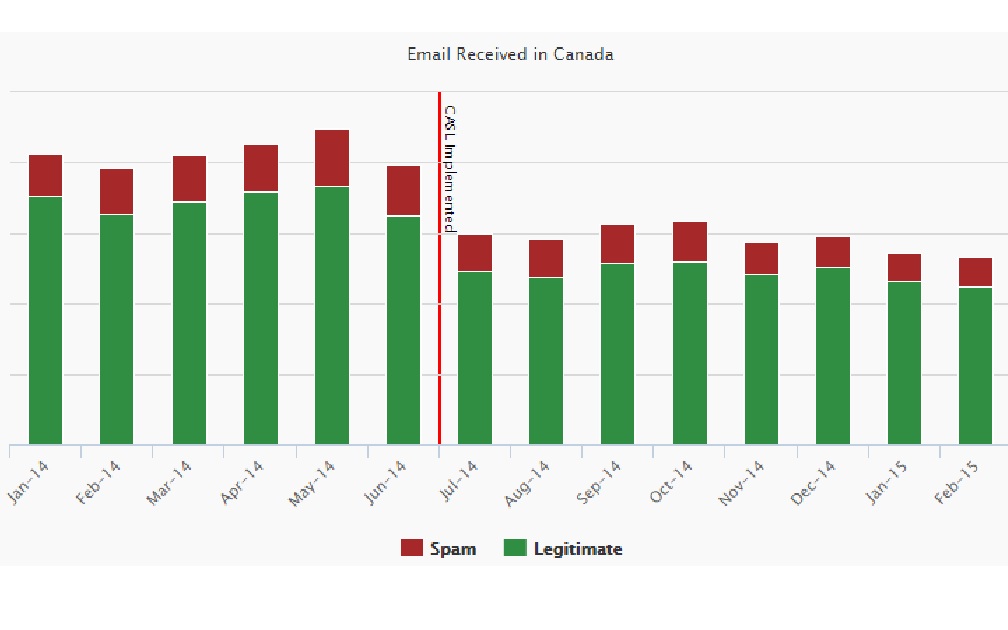On April 28, 2015, Cloudmark released its 2015 Q1 Security Threat Report which underscored the beneficial impact that Canada’s Anti-Spam Law (CASL) has had on spam in Canada since it came into force on July 1, 2015.
The Cloudmark report had the following to say on CASL:
“On July 1st of last year, a stringent anti-spam law, Canada’s Anti-Spam Law (CASL), went into effect. We took a look to see what impact this had on Canadian email activity. Our most significant findings were:
- 37% reduction in spam originating in Canada, the majority of that going to the United States
- 29% reduction in all email received by Canadians, spam and legitimate
- No significant change in the percentage of emails received by Canadians that were spam
Let’s look at those results in detail.
Spam is an international phenomenon, but the US is both one of the biggest sources and the biggest targets for spammers. It’s not a surprise, then, that 53% of spam that Canadians receive is from the US, and 78% of spam that is sent from Canada goes to the US. However, the amount of spam outbound from Canada went down noticeably when CASL was implemented.
